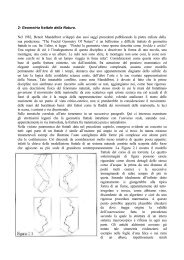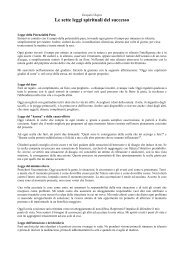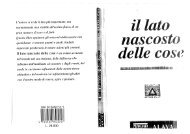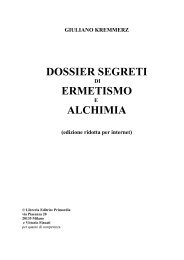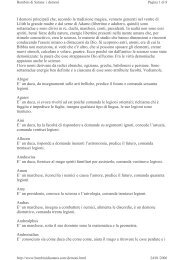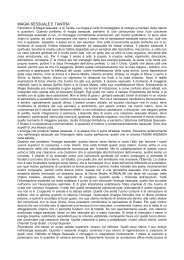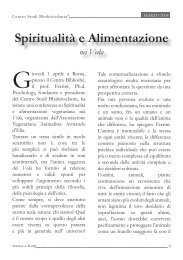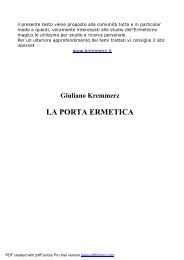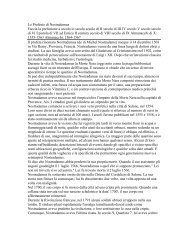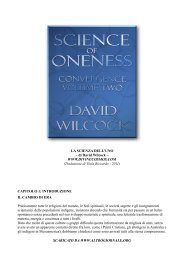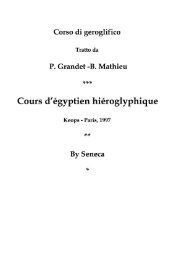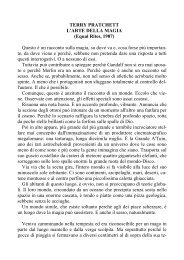124 ~ TALIBANa wider political settlement is needed before drugs production can be becontrolled.' 14 The record of wealthy countries supporting UNDCP initiativeswas not particularly hopeful either. Between 1993 and 1997 UNDCPhad asked for US$16.4 million from international donors for antinarcoticswork in Afghanistan and received only half that amount.The taxes on opium exports became the mainstay of Taliban incomeand their war economy. In 1995 UNDCP estimated that Pakistan-Afghanistan drugs exports were earning some 50 billion rupees (US$1.35billion) a year. By 1998 heroin exports had doubled in value to US$3billion. Drugs money funded the weapons, ammunition and fuel for thewar. It provided food and clothes for the soldiers and paid the salaries,transport and perks that the Taliban leadership allowed its fighters. Theonly thing that can be said in the Taliban's favour was that unlike in thepast, this income did not appear to line the pockets of their leaders, asthey continued to live extremely frugal lives. But it made the Afghan andPakistani traffickers extremely rich.Alongside the drugs trade, the traditional Afghan smuggling trade fromPakistan and now the Gulf states, expanded under the Taliban and createdeconomic havoc for neighbouring states. The Afghan Transit Trade(ATT), described in detail in Chapter 15, is the largest source of officialrevenue for the Taliban and generates an estimated US$3 billion annuallyfor the Afghan economy. Customs officials in Kandahar, Kabul and Heratrefuse to disclose their daily earnings but with some 300 trucks a daypassing through Kandahar on their way to Iran and Central Asia viaHerat and another 200 trucks passing through Jalalabad and Kabul to thenorth, daily earnings are considerable. The illegal trade in consumergoods, food and fuel through Afghanistan is crippling industries, reducingstate revenues and creating periodic food shortages in all neigbouringstates - affecting their economies in a way that was never the case duringthe jihad.Taliban customs revenues from the smuggling trade are channelledthrough the State Bank of Afghanistan which is trying to set up branchesin all provincial capitals. But there is no book-keeping to show whatmoney comes in and where it goes. These 'official' revenues do notaccount for the war budget which is accumulated and spent directly byMullah Omar in Kandahar and is derived from drugs income, aid fromPakistan and Saudi Arabia and other donations. 'We have revenues fromcustoms, mining and zakat, but there are some other sources of incomefor the war effort that do not come through the State Bank of Afghanistan,'admitted Maulvi Arifullah Arif, the Deputy Minister of Finance. 15With the war being run directly by Mullah Omar from his tin trunksstuffed full of money, which he keeps under his bed, making a nationalbudget is next to impossible - even if the expertise was available, whichHIGH ON HEROIN: DRUGS AND THE TALIBAN ECONOMY ~ 125it is not. The Finance Ministry has no qualified economist or banker.The Minister and his deputies are mullahs with a madrassa education andknowledgeable bureaucrats were purged. The paucity of official funds canbe judged by the fact that in 1997 the Finance Ministry had set a budgetof the equivalent of US$100,000 for the entire country's administrationand development programmes for the Afghan financial year - February1997-January 1998. In fact this amount just covered salaries for officials.Some of the mullah traders within the Taliban are trying to encourageindustry and foreign investment, but there appears to be no serious supportfrom the Taliban leadership for these efforts. 'We want to developAfghanistan as a modern state and we have enormous mineral, oil andgas resources which should interest foreign investors,' said Maulvi AhmedJan, the Minister of Mines and Industries, who left his carpet business inSaudi Arabia to join the Taliban and run Afghanistan's industries. 'Beforewe took control of the south there was no factory working in the country.Now we have reopened mines and carpet factories with the help of Pakistaniand Afghan traders,' he added. He agreed that few members of thepowerful Kandahar Shura were interested in economic issues as they weretoo involved with the war. 16As an investment incentive to foreigners, particularly Pakistani traders,Ahmed Jan was offering free land to anyone who would build a newfactory. But with the collapse of the country's infrastructure, any investorwould have to build his own roads and provide electricity and housing.Only a few Pakistani and Afghan transport-traders based in Peshawar andQuetta, who are already involved in either smuggling or the lucrativeillegal timber trade from Afghanistan, appear to be taking an interest inprojects such as mining.There is no educated or professional class left in the country. In theseveral waves of refugees that have left the cities since 1992, all the educated,trained professionals, even telephone operators, electricians andmechanics, have gone. Most of the Taliban running the departments offinance, economy and the social sector are mullah traders - businessmen,truck transporters and smugglers for whom the rationale of nationbuildingis seen only in the perspective of expanding the market for smugglingand the trucking business across the region.One such is Mullah Abdul Rashid, a fierce-looking Taliban militarycommander from Helmand, who gained notoriety in April 1997 when hecaptured a Pakistani military patrol that had entered Afghan territoryfrom Baluchistan province to chase a gang of drug smugglers. Rashidarrested the soldiers and sent them to Kandahar, sparking off a row withPakistan. He also runs the Taliban-owned marble mines in Helmand. Themine which employs 500 men with picks, has no mining engineers, no
126 TALIBANequipment, no electricity and no expertise. Rashid's mining techniquesare limited to using explosives to blast (and scar) the marble.The Taliban's appetite for foreign investment had been first wetted bythe competition between two oil companies, Bridas of Argentina and theUS company Unocal, who were competing for influence with the Talibanin order to build a gas pipeline from Turkmenistan to Pakistan acrosssouthern Afghanistan (see Chapters 12 and 13). The pipeline attracted afew swashbuckling, risk-taking businessmen. These included Afghan andPakistani traders who built regular petrol pumps in Kandahar and alongthe route to Herat. They also promised to build roads. A USA-basedgroup provided the Taliban with a mobile telephone network betweenKabul and Kandahar in 1999. Such activities did little for re-establishinga regular economy. They were solely aimed at improving the Taliban'ssmuggling business and making life easier for traders and transporters.Serious foreign investment and even aid to begin reconstruction is certainlynot going to happen until there is an end to the war and a governmentwhich can ensure minimum stability and public loyalty. In themeantime Afghanistan is like an economic black hole that is sending outwaves of insecurity and chaos to a region that is already facing multipleeconomic crises. Afghanistan's infrastructure lies in ruins. Basic civicamenities available in any underdeveloped country are non-existent.There is no running water, little electricity, telephones, motorable roadsor regular energy supplies. There are severe shortages of water, food andhousing and other basic necessities. What is available is too expensive formost people to afford.The laying of millions of mines during the war has created severe resettlementproblems in the cities and the countryside, where agriculture andirrigation in the most fertile areas is hampered by mines. Since 1979,400,000 Afghans have been killed and another 400,000 injured in mineexplosions. A staggering 13 per cent of all Afghan families has had a relativekilled or crippled in mine accidents and over 300 people are killed ormaimed every month. Although some 4,000 deminers working for the UNand other NGOs are trying to demine the country as fast as possible, it couldtake another decade before even the major cities are demined. In 1998, aftersix years of extensive work, Kabul still had some 200 square miles out of atotal of 500 square miles of the city which had not been demined. 17Apart from mines, the daily battle for most Kabulis is to find enoughof the grubby Afghani notes to pay for daily foodstuffs. Although theshops are full of smuggled foodstuffs from Iran and Pakistan, people donot have the money to buy them. Salaries for those Afghan surgeons whohave not fled Kabul is the equivalent of US$5 a month. They only survivebecause their salaries are subsidized by the ICRC. Average salaries arearound US$l-3 a month. As a result of grinding poverty and no jobs, aHIGH ON HEROIN: DRUGS AND THE TALIBAN ECONOMY ~ 127large percentage of the urban population is totally dependent on UNagencies for basic survival and subsidized food supplies. Fifty per cent ofKabul's 1.2 million people receive some kind of food aid from Westernhumanitarian agencies.This poses a continuing dilemma for the UN as to whether its humanitarianaid is only sustaining the war, because it gives the warlords theexcuse to absolve themselves of taking responsibility for the civilian population.The Taliban continuously insisted that they were not responsiblefor the population and that Allah would provide. However, the sufferingof ordinary Afghans would only increase if the UN and NGOs were tocease their relief operations altogether and in particular stop feeding vulnerablegroups such as widows and orphans.In 1998 the economic situation visibly worsened. Northern Afghanistanwas hit by three devastating earthquakes, the Taliban siege of theHazarajat led to widespread starvation in central Afghanistan, floods inKandahar submerged villages and crops and the urban population wasblighted by the pull-out of aid agencies after the US missile strikes inAugust 1998. There was visible malnutrition on the streets of Kabulduring the freezing winter of 1998-99, when few could afford to eat evenone meal a day or heat their homes. However, there were signs of hope,if only peace would come. The WFP estimated that cereal production for1998 would be 3.85 million tons, five per cent more than 1997 and thebest year of production since 1978.This reflected the improved law and order in rural areas under Talibancontrol, the lack of fighting and the return of refugees to farm their lands.Although there are still 1.2 million Afghan refugees in Pakistan and 1.4million in Iran, more than 4 million refugees had returned home between1992 and 1999. However, the Taliban and the UN agencies still had toimport 750,000 tons of wheat in 1998 for the cities to make up the foodshortfall. Clearly the Taliban did not create the economic devastation inAfghanistan. Rather they inherited it from the civil war which all thefactions waged after 1992. But none of the factions, including the Talibanhave paid any attention to the needs of the civilian population.Thus it is not surprising that Western countries are suffering from'donor fatigue' - the reluctance to come up with more money for humanitarianaid, when the civil war continues unabated and the warlords are soirresponsible. 'The level of suffering experienced by the Afghan people isliterally horrendous,' said Alfredo Witschi-Cestari, the UN Co-ordinatorfor Afghanistan until 1998. 'As the years go by, funds trickle in slowerand slower. We raise less than half the money we ask for.' 18 The warlordsare not even remotely concerned with planning for the reconstruction ofthe country. Afghanistan's economic black hole is getting larger andwider, sucking more and more of its own population and the people ofthe region into it.
- Page 1 and 2:
YALE NOTA BENE"The broader storyher
- Page 3 and 4:
TalibanMilitant Islam,Oil and Funda
- Page 5 and 6:
Vi ~ CONTENTSChapter 8A Vanished Ge
- Page 7 and 8:
AFGHANISTAN•^ UZBEKISTAN J TAJIKI
- Page 9 and 10:
2 ~ TALIBANaccounts for some 40 per
- Page 11 and 12:
"6 ~ TALIBANgas riches of landlocke
- Page 13 and 14:
10 ~ TALIBANgious mix that was to m
- Page 15 and 16:
Part 1History of theTaliban Movemen
- Page 17 and 18:
18 ~ ISLAM OIL AND THE NEW GREAT GA
- Page 19 and 20: 22 ~ ISLAM OIL AND THE NEW GREAT GA
- Page 21 and 22: 26 ~ ISLAM OIL AND THE NEW GREAT GA
- Page 23 and 24: 30 ~ ISLAM OIL AND THE NEW GREAT GA
- Page 25 and 26: 34 TALIBANKabul- Hikmetyar had alli
- Page 27 and 28: 38 ~ TALIBANrHERAT 1995: GOD'S INVI
- Page 29 and 30: 42 ~ TALIBANdo manage to take Kabul
- Page 31 and 32: J46 ~ TALIBANgreater weight to UN e
- Page 33 and 34: 50 ~ TALIBANas they hung from steel
- Page 35 and 36: 54 ~ TALIBANthey would help rearm t
- Page 37 and 38: 58 TALIBANGul Mohammed Pahlawan, Gh
- Page 39 and 40: 62 TALIBAN2,500 Taliban, who had re
- Page 41 and 42: 66 TALIBANshould throw all aid agen
- Page 43 and 44: 70 ~ TALIBANyears of battle and hel
- Page 45 and 46: 74 ~ TALIBANThousands of Hazaras we
- Page 47 and 48: 78 TALIBANhas become a plague,' sai
- Page 49 and 50: NEW STYLE FUNDAMENTALISM OF THE TAL
- Page 51 and 52: 86 TALIBANsity students - Hikmetyar
- Page 53 and 54: 90 TALIBANSharia was heavily influe
- Page 55 and 56: 94 TALIBANinflamed the debate in th
- Page 57 and 58: 98 TALIBANizing factor of Islam, it
- Page 59 and 60: 102 TALIBANadministrations made the
- Page 61 and 62: 106 ~ TAUBANfrom working, but it no
- Page 63 and 64: TALIBANUniversity, she held down a
- Page 65 and 66: 114 TALIBAN A VANISHED GENDER 115Ta
- Page 67 and 68: 118 TALIBANUS$1,300 - a small fortu
- Page 69: 122 TALIBANper cent of the total Pa
- Page 73 and 74: 130 ~ TALIBANfight with the Mujahed
- Page 75 and 76: 134TALIBANAugust 1996 noted that Bi
- Page 77 and 78: 138 ~ TALIBANwho were using the Kho
- Page 79 and 80: 11DICTATORS AND OILBARONS: THE TALI
- Page 81 and 82: 146 TALIBAN DICTATORS AND OIL BARON
- Page 83 and 84: 150 — TALIBANgrowth of beards and
- Page 85 and 86: 154TALIBAN1998 when international o
- Page 87 and 88: 158 ~ TALIBANaround Afghanistan? Af
- Page 89 and 90: 162 TALIBAN ROMANCING THE TALIBAN 1
- Page 91 and 92: 166 TALIBAN ROMANCING THE TALIBAN 1
- Page 93 and 94: ROMANCING THE TALIBAN 2: 1997-99 17
- Page 95 and 96: 174 — TALIBANnon-Russian pipeline
- Page 97 and 98: 178 — TALIBANROMANCING THE TALIBA
- Page 99 and 100: 182 ~ TALIBANApril 1999. 'The US ha
- Page 101 and 102: 186 ~ TALIBANters or the transport
- Page 103 and 104: 190 ~ TALIBANThis Wild West of free
- Page 105 and 106: 194 ~ TALIBANgovernance. Pakistani
- Page 107 and 108: 198 TALIBAN SHIA VERSUS SUNNI: IRAN
- Page 109 and 110: 202 TALIBAN SHIA VERSUS SUNNI: IRAN
- Page 111 and 112: 206 — TALIBANin Afghanistan - to
- Page 113 and 114: 210 — TALIBANand antagonism. The
- Page 115 and 116: 214 ~ TALIBANdrawn since 1996 - a P
- Page 117 and 118: 218 ~ TALIBANated and severely puni
- Page 119 and 120: Origins of Members of the Taliban M
- Page 121 and 122:
APPENDIX 3 ~ 227Appendix 3A CHRONOL
- Page 123 and 124:
230 ~ TALIBANgraves near Shebarghan
- Page 125 and 126:
234 ~ TALIBAN8 June. US FBI places
- Page 127 and 128:
238 ~ TALIBAN1995 January16 MarchAp
- Page 129 and 130:
242 ~ TALIBANJune21 August10 Septem
- Page 131 and 132:
246 ~ TALIBANDupree, Nancy Hatch, A
- Page 133 and 134:
250 ~ NOTESChapter 31 Interview wit
- Page 135 and 136:
254 ~ NOTESmuddin, Religious Police
- Page 137 and 138:
258 NOTES13. The Japanese company M
- Page 139 and 140:
262 ~ NOTES28. Waxman, Sharon, 'A c
- Page 141 and 142:
Abbas, Mulla Mohammed 22,61,100Abda
- Page 143 and 144:
INDEX - 270Hazaras (continued)burea
- Page 145 and 146:
INDEX ~ 274nF»r\/FaliViar» milita
- Page 147:
INDEX ~ 278Talibans (continued)Sunn




